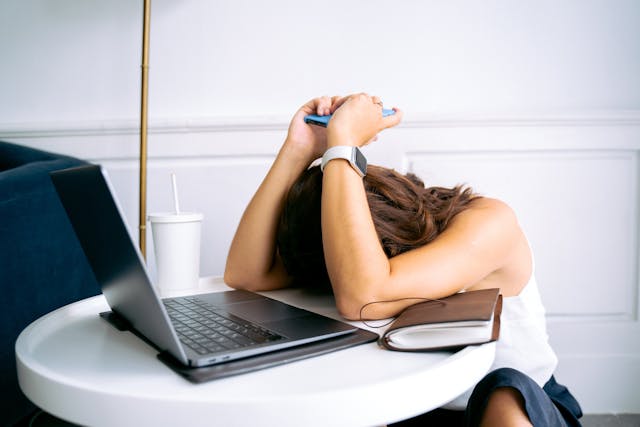
Why do people procrastinate? The majority of people that procrastinate do so because they are trying to avoid the negative emotions that come with whatever task it is they are trying to do.
The word “procrastinate” came into English via French, from Latin. The latin word was “procrastinare”. In Latin, “pro” means “forward” and “crastinus” means “belonging to tomorrow”. In the 19th century, procrastinators were sometimes called “tomorrowers”, which I think is a pretty cool expression. The root of the Latin word came from “akrasia” in Greek, which is a “weakness of will” or a “lack of self-control”. Put all of these together and you have something that belongs to tomorrow because of a weakness of will, which sounds pretty accurate.
There is no way of knowing exactly how many people procrastinate. The only possible way of finding out is to ask a sample of people and then extrapolate out. That shows that roughly 20% of people procrastinate chronically, as in it has a big effect on their lives. 75% of people procrastinate regularly, and the rest say that they never procrastinate. If you are like me, you procrastinate on some things and not others. You have some days that are worse than others. And you put off big things, such as life goals, because dealing with failing is too much.
The reason we procrastinate is because of negative emotions. As humans, we evolved our emotions a long time ago, but at different times throughout history. The primal emotions, such as fear, happiness, and love, evolved very early on. We need fear to be able to react to dangerous situations or to avoid putting ourselves in danger and we need happiness to show us what things are beneficial to us. We need love because our offspring take a lot longer to become self-sufficient than many other animals and a couple staying together would have far more chance of finding food and protecting that offspring than the mother on her own. Other emotions, such as shame, guilt, and pride came along later, when we started living in social groups. Every emotion we have, whether positive or negative, is there to make us do something. The positive emotions are there to make us do more of something and the negative ones are there to stop us doing something. We have evolved to associate negative emotions with something that we shouldn’t do or something that is bad for us. Whenever we have a negative emotion, our brains desperately want to stop it and turn the emotion into a positive one.
This desire to change a negative emotion into a positive emotion is the basis for procrastination. Whatever we are doing that we don’t want to do gives us a negative emotion, so we change what we are doing to get a positive emotion. We know that procrastinating will harm us in the future, but all we can focus on is the immediate short-term desire to get rid of that negative emotion. The only way to stop procrastinating is to be ok with those negative emotions, which is where the will power that the Greeks talked about comes in.
So, if we procrastinate to avoid bad emotions, where do those emotions come from? One obvious one is boredom. Often, the work we do is tedious, and we cannot make ourselves concentrate on it. As humans, we get bored fairly easily, but that is not a bad thing. All of our emotions have evolved because they serve a purpose and boredom is no different. Boredom pushes us to seek out new experiences, to find new places, and to push us to innovate. Or, in today’s society, to look at Instagram. Boredom can encourage procrastination, but a lot of us are able to overcome boredom and stick to a task. Possibly a far more common cause and one that is less easy to overcome is fear. Fear is a huge driver of procrastination. When we have something we need to do we feel fear that we won’t be able to do it. We feel fear that we won’t be able to live up to people’s expectations. We feel fear that we will make a mistake. We feel fear that we will make the wrong decision. We feel fear that we will upset somebody. We feel fear that we are not good enough. All of these are more reasons that make us afraid, and we know from experience that we feel fear when we find something bad. Our natural impulse is to avoid bad things. It used to be a predator hiding behind a tree, but now it is that report we can’t start. To avoid the feeling of fear, we do another activity that we know will bring us pleasure and dopamine cancels out the feeling of fear, but it is only a temporary fix and it will come back worse. The only way to beat procrastination is to overcome this feeling of fear or learn that these things are not to be feared. But that isn’t easy. I haven’t yet worked out how to. And this is what I learned today.
If you liked this, try these:
Sources
https://en.wikipedia.org/wiki/Evolution_of_emotion
https://en.wikipedia.org/wiki/Akrasia
https://www.etymonline.com/word/procrastination
https://www.mcleanhospital.org/essential/procrastination
Photo by Anna Tarazevich: https://www.pexels.com/photo/woman-in-white-top-holding-a-smartphone-with-head-down-on-table-6173675/
